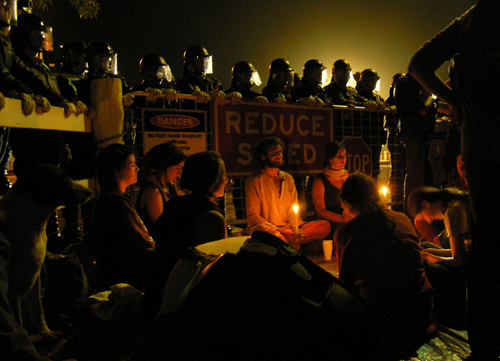
In August 2005 a group known as Christians Against Greed joined a rowdy protest against a conference of global corporations at the Sydney Opera House, and found themselves sharing the Eucharist with riot police and anarchists. On Human Rights Day that year, four activists calling themselves Christians Against All Terrorism broke into and attempted a “citizens’ inspection” of the Pine Gap spy base. One week after their trial ended in 2007, five people walked into a war games zone at Shoalwater Bay to play frisbee with defence personnel.
These events were all very public and deeply theological. Yet we tend not to consider them, and other actions like them, as examples of public theology – a term for the process of the church thinking and speaking to the general public about contemporary issues.
In this paper I want to argue that we need a broader understanding of ‘public theology’ that includes public action on the part of the church (or members of the church) that speaks directly into the public sphere. I suggest that Christian nonviolent direct action should be seen in this light, and that both the acts themselves and the public statements made by the actors are clearly designed to articulate a Christian message in response to critical problems of their time.
In this paper I look at three recent examples of Christian nonviolent direct action in Australia. Using the ‘best practice principles’ for public theology identified by John W. de Gruchy, I will explore the way in which these actions make statements to the public about God’s judgment of current policies and God’s vision for a transformed world.
